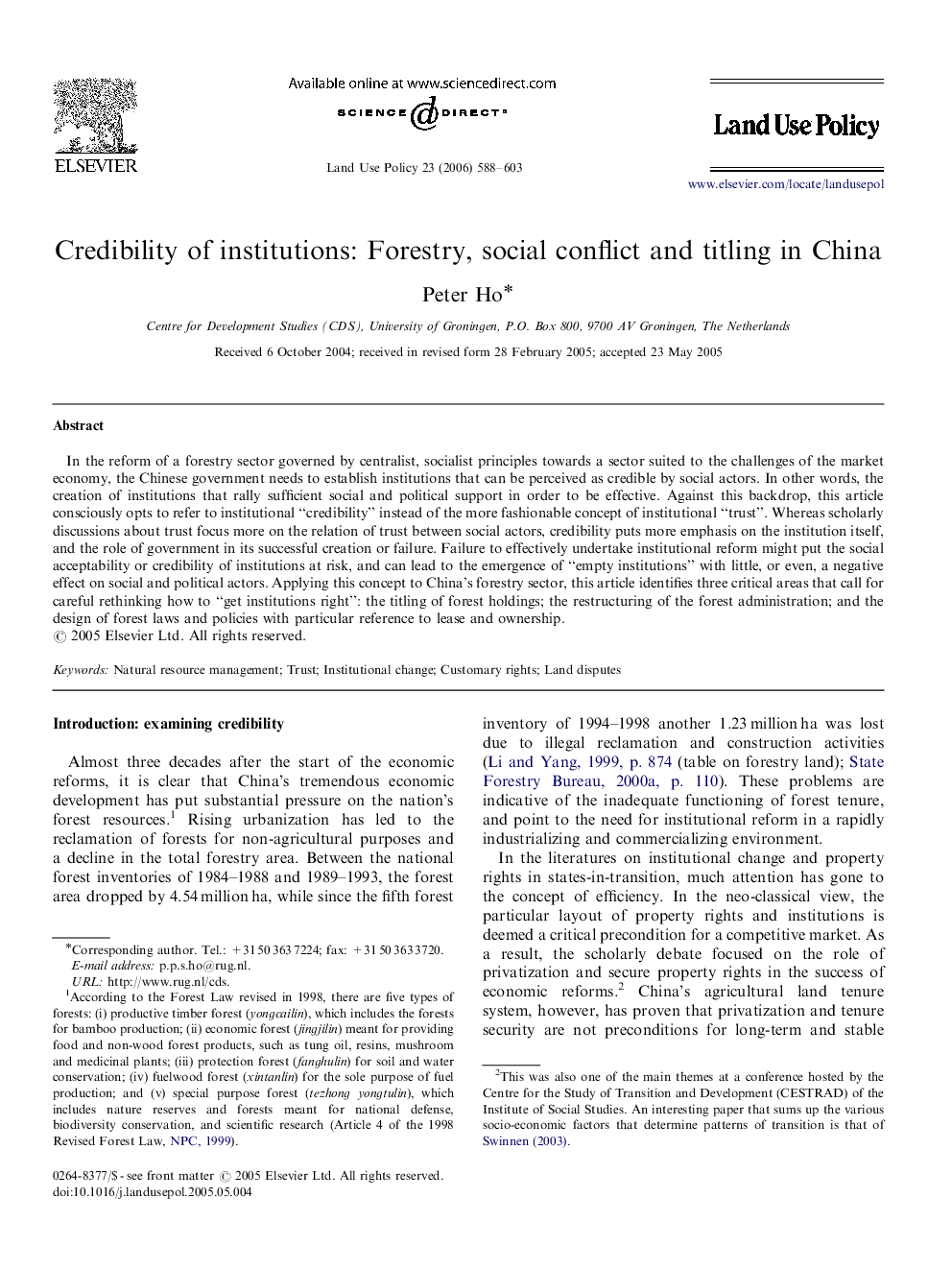| Article ID | Journal | Published Year | Pages | File Type |
|---|---|---|---|---|
| 93887 | Land Use Policy | 2006 | 16 Pages |
In the reform of a forestry sector governed by centralist, socialist principles towards a sector suited to the challenges of the market economy, the Chinese government needs to establish institutions that can be perceived as credible by social actors. In other words, the creation of institutions that rally sufficient social and political support in order to be effective. Against this backdrop, this article consciously opts to refer to institutional “credibility” instead of the more fashionable concept of institutional “trust”. Whereas scholarly discussions about trust focus more on the relation of trust between social actors, credibility puts more emphasis on the institution itself, and the role of government in its successful creation or failure. Failure to effectively undertake institutional reform might put the social acceptability or credibility of institutions at risk, and can lead to the emergence of “empty institutions” with little, or even, a negative effect on social and political actors. Applying this concept to China's forestry sector, this article identifies three critical areas that call for careful rethinking how to “get institutions right”: the titling of forest holdings; the restructuring of the forest administration; and the design of forest laws and policies with particular reference to lease and ownership.
